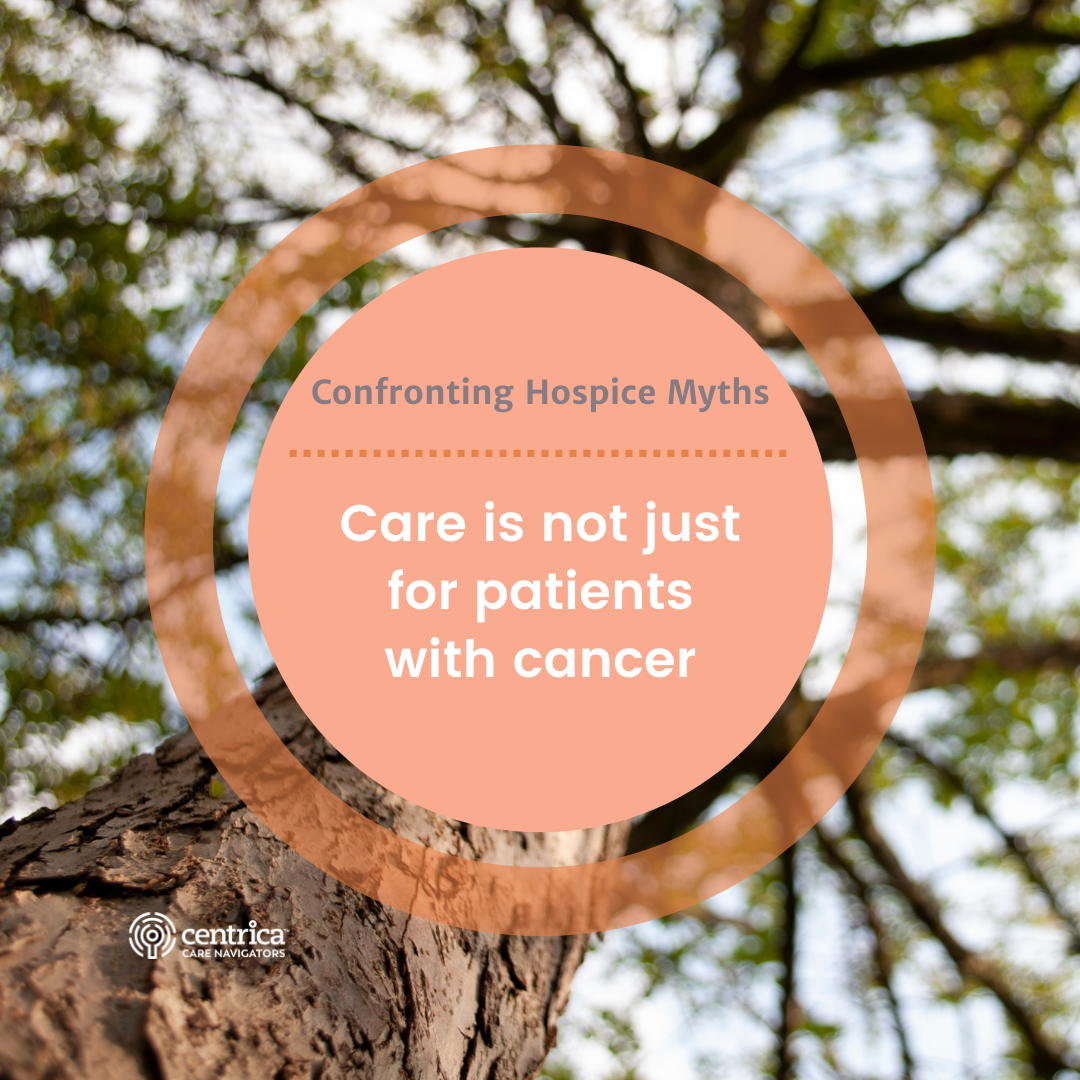End-of-life care is for people who have a terminal illness, and hospice is for people who are expected to live 6 months or fewer. More Americans die from cancer than from almost any other disease or situation (like a car accident). So that must mean that cancer is the only reason to go into hospice, right?
Not at all. In 2022, patients who were in Centrica Care Navigators care did have a primary diagnosis of cancer – but that was only 33% of our patients that year. We also had cardiac disease patients, dementia patients, and even 39 people with a primary diagnosis of COVID-19. Other patients were admitted with ALS, neurological disease, strokes, and other conditions.
Compassionate care
Hospice is for any patient with a terminal diagnosis, no matter what kind of illness they have. We’re proud that we’re known for our compassionate care for all our patients. Compassionate care means working hard to relieve pain, something that researchers say patients want to happen for them.
We’re proud that we’re known for our compassionate care for all our patients.
It’s literally in our motto:
“We guide and support individuals and their caregivers coping with illness, aging, dying, and loss by providing compassionate medical, emotional, spiritual, and personal care.”
Cancer is a disease with a wide range of outcomes – one person can live with cancer for years, while another can die from it almost as soon as it has been diagnosed. Centrica Care Navigators is there no matter how long the disease is part of a patient’s life.
Caring for cancer
You might not know that patients don’t have to stay with hospice care once they have started it; they can revoke coverage to try active treatment for cancer. But that can be expensive and painful, and it may not help.
What hospice will do is make the patient’s remaining time more comfortable, so they can spend their days with loved ones and doing things they want to do.
What’s true of cancer is true of patients with any life-limiting illness:
- Hospice teams offer compassionate care to every patient.
- Care is most often done in a patient’s home, and is designed to make the patient comfortable.
- Patients can be with friends and family as long as they want to.
- Their emotional and spiritual needs will get the attention they deserve.
- The important thing isn’t treating a disease; it’s making sure patients have a good quality of life.
Our Mission is to guide and support individuals and their caregivers coping with illness, aging, dying, and loss by providing compassionate medical, emotional, spiritual, and personal care.




